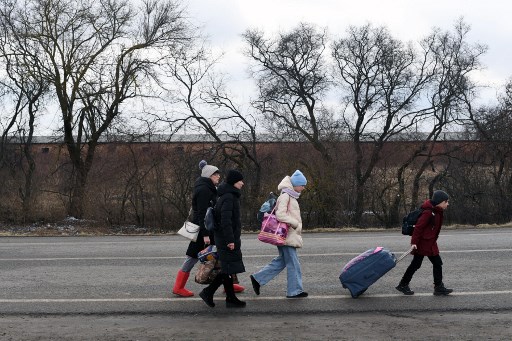
KYIV, Ukraine (AFP) — The Russian army said Monday that Ukrainian civilians could “freely” leave the country’s capital Kyiv and claimed its airforce dominated Ukraine’s skies as its invasion entered a fifth day.
“All civilians in the city can freely leave the Ukrainian capital along the Kyiv-Vasylkiv highway. This direction is open and safe,” Russian defence ministry spokesman Igor Konashenkov said in televised remarks.
Vasylkiv is located to the southwest of Kyiv.
Konashenkov hinted that Russia was preparing to target civilian areas of Kyiv, accusing Ukrainian troops of using civilians as human shields.
He cited Ukraine’s advice to Kyiv’s citizens to stay at home and observe a nighttime curfew as proof of his claim that civilians were being used to shield “nationalists, who have placed artillery detachments and military equipment in residential areas”.
He added that Kyiv had been overrun by “bands of looters, robbers and nationalists who have received weapons” from the authorities.
Listing Moscow’s military advances, Konashenkov claimed that Russia’s aviation has superior air power over the “entire territory of Ukraine”.
In Ukraine’s southeast, Russian troops have taken control of the port city of Berdyansk and the city of Energodar, which has a large nuclear power plant, Konashenkov said.
Russian troops are guarding the Zaporizhzhia nuclear power station, which is continuing to operate and the radiation levels are normal, the military spokesman said.
© Agence France-Presse







